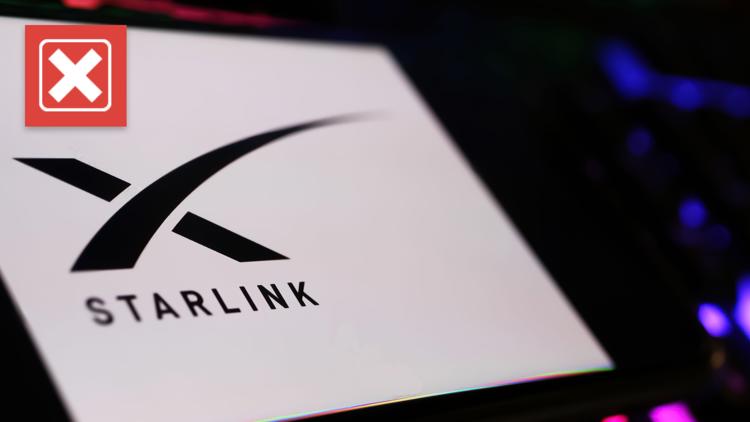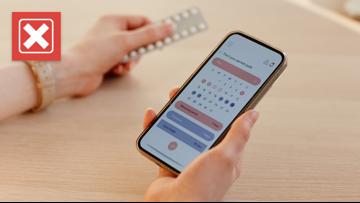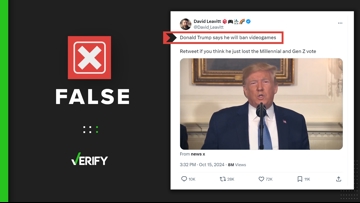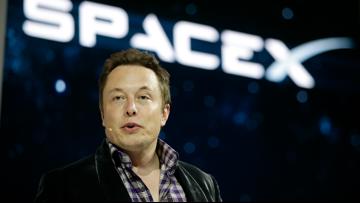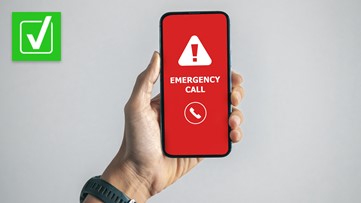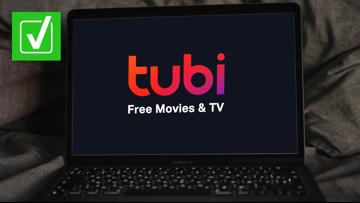Hurricane Helene came ashore Sept. 26 as a Category 4 hurricane and carved a wide swath of destruction as it moved north from Florida. It washed away homes, destroyed roads and knocked out power and cell phone service for millions, killing more than 200 people.
Starlink is a satellite internet service developed by Elon Musk’s SpaceX to provide high-speed internet to remote or underserved areas around the world. Starlink is often used during natural disasters because it provides internet where traditional infrastructure, like cell towers and fiber-optic cables, are damaged or destroyed. The service relies on a constellation of low-Earth orbit satellites to provide internet service instead of on-the-ground equipment.
But the company's founder Elon Musk shared screenshots of text messages that allege the Federal Emergency Agency (FEMA), which leverages Starlink technology in disaster zones, actually prevented helicopters from delivering Starlink equipment to the hurricane-affected areas because the airspace was shut down.
Several VERIFY readers asked us if it’s true that FEMA prevented Starlink from reaching hurricane victims.
THE QUESTION
Did FEMA prevent Starlink equipment from reaching hurricane victims?
THE SOURCES
- Oct. 6 MSNBC interview with Transportation Secretary Pete Buttigieg
- Federal Emergency Management Agency (FEMA)
- Federal Aviation Administration (FAA)
- Elon Musk Oct. 4 X post
- North Carolina Department of Public Safety
- Oct. 2 remarks by President Joe Biden
- The White House Fact Sheet on Hurricane Helene response
- Former President Donald Trump at an Oct. 5 rally
- Starlink
THE ANSWER
No, FEMA didn’t prevent Starlink equipment from reaching hurricane victims.
WHAT WE FOUND
Despite rumors, FEMA did not block Starlink equipment from reaching Hurricane Helene recovery areas. The White House and other federal and state agencies have confirmed Starlink units were deployed to affected areas.
The source of the misinformation appears to have stemmed from isolated logistical issues individual pilots were having while delivering Starlink equipment. During an Oct. 6 interview with MSNBC, Transportation Secretary Pete Buttigieg acknowledged the issue and said he spoke with Elon Musk via phone about the claims.
“What was actually happening was the FAA was not closing down any airspace, but there was an issue with pilots who were helping to get Starlink equipment to where it needed to be. Having the right information, we worked that out with local authorities and we were able to take care of it,” Buttigieg said.
FEMA also clarified that the Federal Aviation Administration (FAA) is not restricting access for recovery operations. The FAA confirmed that with temporary flight restrictions (TFR) in place in an area, disaster relief operations, including civilian efforts, can still access restricted airspace with coordination with first responders. During the interview, Buttigieg said the additional coordination was needed in order to deliver the Starlink equipment.
On Oct. 4, roughly 6 hours after Musk's initial X post, Musk thanked Buttigieg in a separate X post for resolving the issue with Starlink delivery, but did not delete any of his earlier X posts about FEMA preventing delivery.
Starlink has been in FEMA’s arsenal for emergency response during various natural disasters, including Hurricane Helene. FEMA has previously deployed Starlink in disaster areas including Guam, Hawaii and Alaska.
“Because the unit is portable and weighs less than 15 pounds, FEMA can deliver it to the areas that need it most, bringing connectivity to over 100 users. Over 60 Starlink units have been sent to multiple states in support of Hurricane Helene response efforts, including 40 units to North Carolina with more on the way. FEMA is in the process of purchasing additional units for use in other areas affected by the storm,” FEMA says.
On Oct. 6, FEMA announced it was enhancing response coordination by distributing more Starlink units so first responders could communicate effectively.
Prior to Musk’s complaint on X, the White House and President Joe Biden said they would be sending Starlink to North Carolina to support first responders.
On Oct. 6, the North Carolina Department of Public Safety reported significant improvements in communications in the region, with 80% of cell service restored and 30 Starlink units supporting mobile rescue operations.
Starlink’s website says in “areas that were impacted by Hurricane Helene, Starlink is available and temporarily offering free service for the first month.”
VERIFY reached out to FEMA, the Department of Homeland Security, the FAA and Starlink for further comment but did not hear back at the time of publication.

